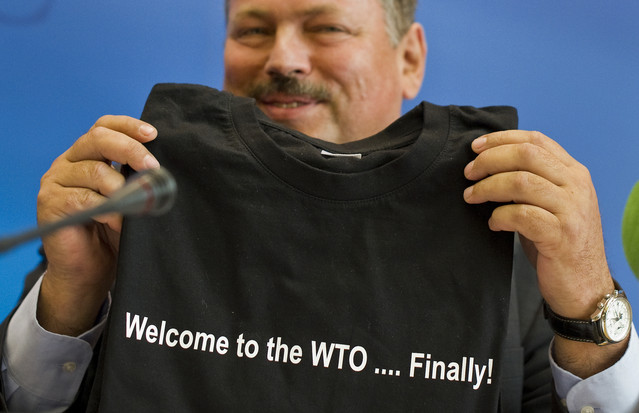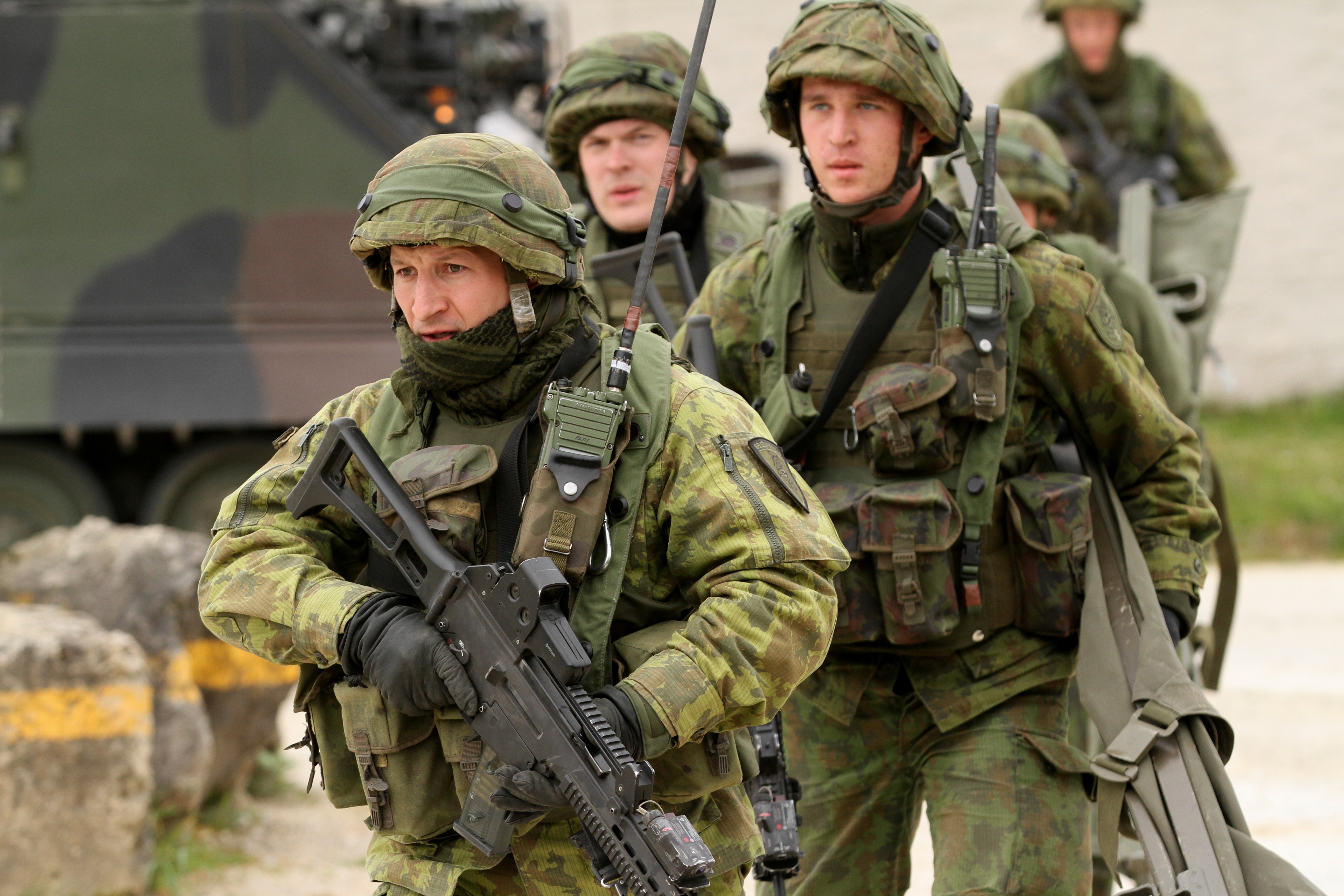[captionpix align=”left” theme=”elegant” width=”320″ imgsrc=” http://rt.com/files/politics/duma-wto-ratification-entry-807/kalinnikov-ria-novostikirill.n.jpg” captiontext=”Russia’s accession to the WTO has not been met with universal acclaim.”]
August 23 will be a big day for Russia, as it will finally become a full-fledged member of the World Trade Organisation, following an 18-year accession period. After China joined in 2001, Russia was the last remaining big economy – and the last G20 member – outside of the WTO.
There is a lot of controversy surrounding this move, as the discourse in Russia is divided along deep cleavages. The supporters are primarily from Putin’s United Russia Party – as he himself is strongly pro-WTO – and they argue that Russia will gain from better prices for consumers, simplified and harmonised customs procedures, and a more attractive investment environment. The opponents, including communists and other leftists, meanwhile believe the move will strangle Russian agriculture and heavy industry. Freed from the politicised polemics of the Duma, what does the WTO accession really promise for Russia?
First of all, changes will not happen overnight, as there will be an average 7-year adjustment period. Although Russia agreed to lower one-third of its general tariffs upon accession, tariffs affecting auto and aircraft industries will come into effect after seven years, with the agriculture sector will be protected for eight years. Therefore, one need not worry that certain Russian industries will receive shock therapy and suffer sudden death—a prospect that weighs heavily on those who lived through the economic shocks of Boris Yeltsin’s post-Soviet liberalization.
On another front, consumers win as products such as imported medicine, which constitutes 77% of the products in Russian pharmacies, sugar, wine, furniture, cars, and meat will become cheaper.
The biggest advantage of all, however, will be the fostering of foreign investment. Russia is in real need of the establishment of certain Western practices in order to uproot final remnants of the Soviet mentality that hinder its development. That is to say that to this day property and investor rights are not very well protected and often disregarded in Russia. Decades of Soviet rule discouraged all such “Western bourgeois” notions and prevented people from openly engaging in investment activity or owning means of production. As a result, today Russians do not have as much experience with these matters as do other nations.
WTO is a quid pro quo system; it does not force anyone to do anything. Russia will negotiate every concession with its trading partners and it has the right to demand concessions in return. It can even maintain certain elements of protectionism. What will happen in that case is that the most favourable nation (MFN) principle will not be applied to it by others. Even if other member-states decide to file an official complaint against Russia to the WTO’s Dispute Settlement Board (DSB), and if Russia is found guilty of violation of any of its previous promises, there is no mechanism to force it to do anything. The only available response would be through retaliatory trade policy, which can be done with or without the WTO. Essentially, the WTO simply tries to make international trade fairer by bringing all the countries to the table where they can discuss and negotiate, and where, if someone is cheating, it is evident to all.
The WTO is not a tool for oppression and exploitation of poor countries by the rich. On the contrary, it gives poorer countries a tool to try and fight exploitation, if they feel they are being subjected to it. Therefore, arguments of some Russian commentators about the WTO being a deliberate trap intended to destroy Russia have no credibility.
Amid the heated debate one should keep in mind that most Russians probably do not even know what the WTO is or does. According to the Russia Public Opinion Research Centre poll, in 2011, 15% of Russians said they had never heard of NATO, and 31% had difficulty describing what it was. If those are the results for NATO, what can we expect from the more obscure WTO? While there are no official polls available that demonstrate how well Russians understand the WTO, we do know that over the last ten years the number supporting the country’s entry into WTO has fallen from 59% to 39%, while the number of opponents to the move has grown from 18% to 35%. Such drastic fluctuation for no apparent reason – as the WTO has not harmed the country in any way over this period – signals that these opinions are a product of a politicised environment, and are not derived from a reasonable debate. Therefore, while some people have legitimate fears associated with the accession to WTO, most of the arguments voiced do not carry much weight.
At the end of the day, only one objection requires attention: the prospect that Russia’s legal environment is not ready for WTO accession. It needs time to establish the appropriate regulations and practices, and then join. The logical answer, as mentioned earlier, is a grace period over which WTO regulations will be slowly implemented in the country. Second – and more importantly – it is unrealistic and almost naive to believe that Russia will be able to implement all the necessary laws and customs outside of the WTO system. Even if it proves difficult, it must join and adapt along the way, which will be the surest way to get on the right track. If Moscow wants to learn to swim with the WTO fish, it needs to jump into their pool. It will prove beneficial for Russia in the long run.



